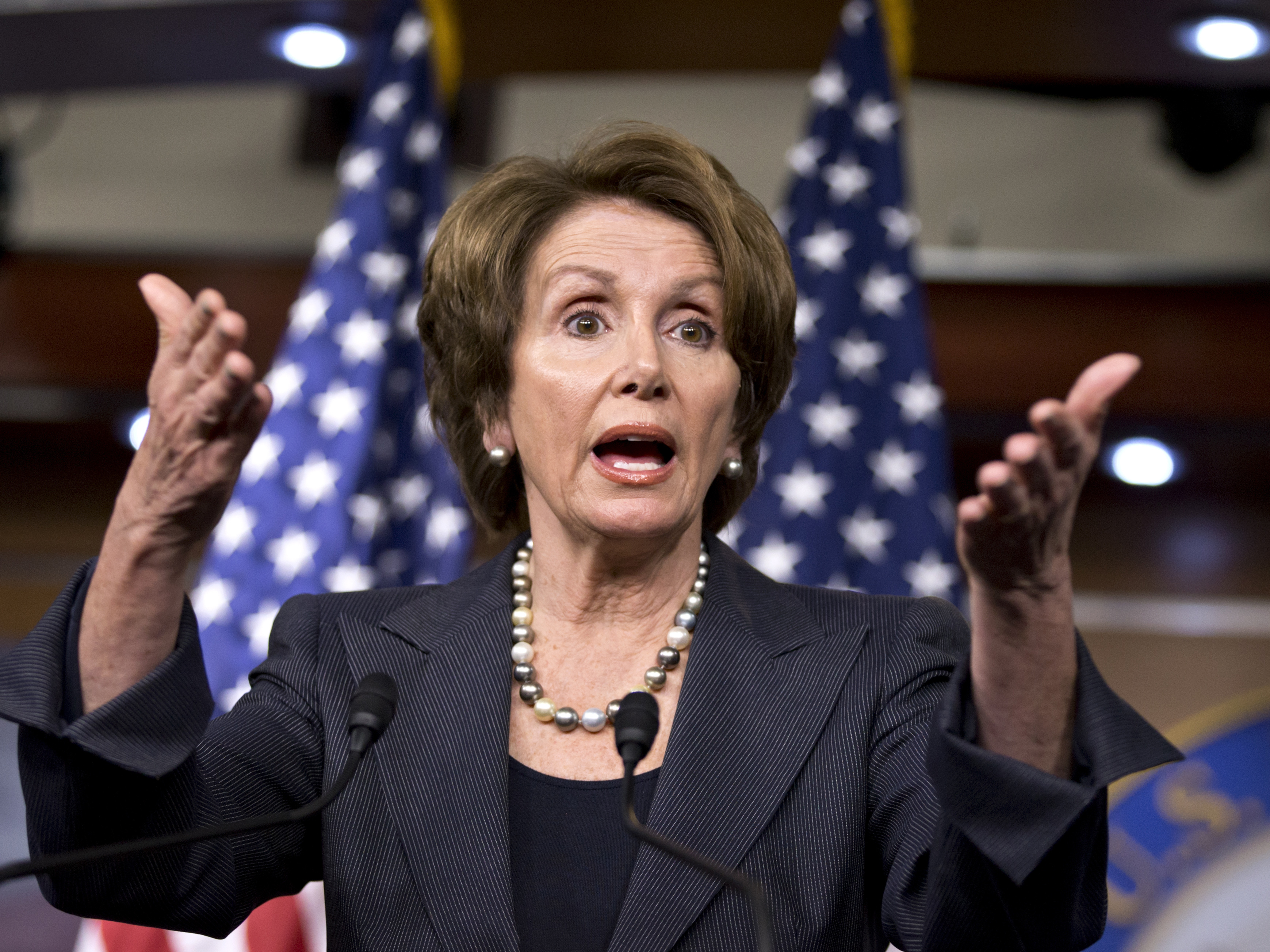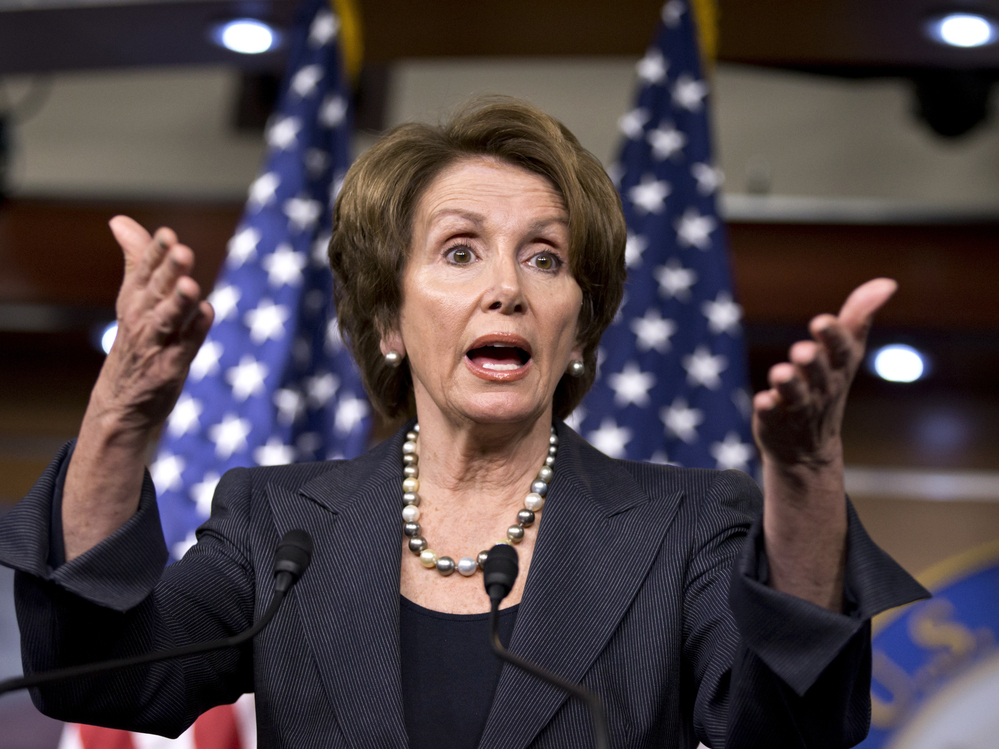House Minority Leader Nancy Pelosi of California said Democrats aren't going to throw America's seniors over the fiscal cliff to give a tax cut to the wealthiest.
House Minority Leader Nancy Pelosi of California said Democrats aren't going to throw America's seniors over the fiscal cliff to give a tax cut to the wealthiest.
J. Scott Applewhite/APCongress has barely two weeks to agree on a deficit-cutting deal to keep the nation from going over the "fiscal cliff" in the new year. The problem is that right now there is no such deal to agree on.
Republicans reject the higher tax rates for top incomes that President Obama demands. And they also insist on more austere entitlement programs, which has Democrats digging in their heels.
House Speaker John Boehner of Ohio, the Republicans' lead negotiator with President Obama, has said it time and again: "Without spending cuts and entitlement reforms, it's going to be impossible to address our country's debt crisis."
On Wednesday, House Majority Leader Eric Cantor got even more specific.
"Any kind of agreement that we come to has to deal with the prime drivers of our deficit, which is the spending and particularly the health care entitlement programs," the Virginia Republican said.
But neither Boehner nor Cantor actually named those entitlement programs, much less any proposals on how to change them.
Dick Durbin of Illinois, the Senate's No. 2 Democrat, is not surprised.
"They want to change entitlements â€" that's part of the deal," he said. "We've said: Be specific. They don't want to talk about it, because the changes can be very controversial and some of them not too popular."
Democrats say the White House has assured them Social Security is not on the table in the deal-making to avoid the sweeping tax hikes and spending cuts that will be triggered at the end of the year. Medicare apparently is being discussed. And one idea Republicans have been pushing is raising the program's eligibility age above its current level of 65.
But just a couple of days ago, House Democratic leader Nancy Pelosi of California was saying: "Don't even think about raising the Medicare age."
Democrats, she said, were not about to throw America's seniors over the fiscal cliff to give a tax cut to the wealthiest.
"If you want the scalp of seniors before you will touch one hair on the head of the wealthiest people in our country, then what's the discussion about?" she said.
In a nationwide survey of 1,500 adults released this week, the Pew Research Center found wide agreement with the Democrats.
"We had 56 percent opposed to raising the eligibility age for Medicare or changing the retirement age for Social Security. We asked both separately and got the exact same answer to both questions," said Michael Dimock, one of that poll's authors. "These are unpopular ideas, particularly for people who are under age 65."
Another idea Republicans have proposed is making the formula used for cost-of-living adjustments to entitlement programs less generous. It's something known as "chained CPI" â€" referring to the consumer price index. Vermont Rep. Peter Welch, a Democrat, says it would be a bitter pill to swallow.
"Chained CPI's tough; it is a cut," he said. "The president's negotiating that. So there's not enthusiasm on the Democratic side to do that â€" a lot of opposition, in fact."
But Democrats are not unanimous in their opposition. Durbin said it could win his support.
"To just say we're just going to do that alone? No, I wouldn't be for that â€" that kind of a potshot approach," he said. "But if you're talking about a package that gives another 20, 30, 40, 50 years of solvency to Social Security, that takes care of the poorest people on Social Security, who don't even reach the poverty level; takes care of the elderly, whose savings are gone â€" I'm listening. Let's talk it through."
But Durbin, like most Democrats, is wary of including any far-reaching and long-lasting entitlement reforms in a hastily thrown-together deal to avoid the fiscal cliff.
Independent Sen. Bernie Sanders of Vermont earlier this week rallied opponents of such reforms.
"People are very clear about what they want, and then you got folks here inside the Beltway who get huge amounts of campaign contributions from the wealthy and large corporations, they have a different perspective," he said. "But we have the people on our side. Let's stand tall, and we're going to win this thing."
Even if that means going over the fiscal cliff.




